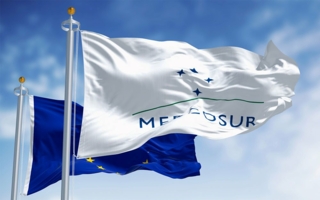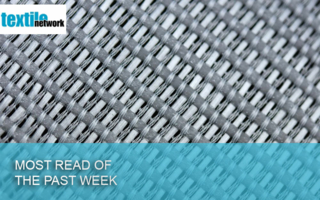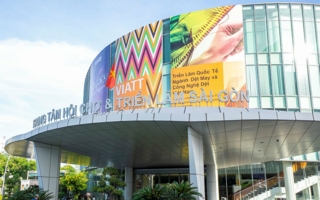19/08/2015 – IVGT — auf Deutsch lesen
The textile industry network
On 7 October 2015 Frankfurt will host the annual session for weaving mill operating managers.
The IVGT is organising the event for what will be the 104th time. The participants from Germany, Austria and Switzerland will attend expert presentations on the “Future challenges for weaving mills: production - innovation – energy”.
The theme embraces the multi-dimensional self-optimisation of the weaving process, the efficient production of 3D materials for lightweight construction, the damage-free finishing of woven electronic components, socio-technical systems and hands-on learning. This will be followed by a discussion with the speakers about future potential, the technical and organisational challenges facing the industry, and the expectations for ITMA 2015 in Milan. During the trade fair, the ETT Club (European Technical Textiles) has scheduled a meeting for 17 November to discuss the latest impressions gleaned from the show.
In 2007, the EU member states pledged to bring about a 20% reduction in primary energy consumption by 2020. This was an ambitious goal, which was later followed by the comprehensive Energy Efficiency Directive (2012/27/EU). In the summer of 2014, the German Federal Government tabled a bill to modify the law on energy services and energy efficiency measures to embrace the requirements for an energy audit, as well as additional regulations and time frames. Commissioned by the Federal Ministry for Economic Affairs and Energy, the study on the "potential and cost-benefit analysis of possible applications for combined heat and power generation" is scheduled for completion by December 2015.
As a result, companies organised within Germany`s and Europe`s textile industry are facing not only rising energy costs but also a whole host of legal requirements, forcing them to invest more time and money in the field of energy management and energy efficiency.
Based on the European Commission`s Energy Efficiency Directive 2020, a software tool has been developed under the direction of the European textile association EURATEX to help textile producers in more ways than one. The IVGT is a member of the project consortium along with other European textiles associations. Its activities are supported by the textiles branch of the German engineering association VDMA and the Italian association ACIMIT.
To enable as many companies as possible to use the ESET tool correctly, the IVGT is joining forces with the DITF-MR in Denkendorf to stage a free User Workshop on 30 September 2015 in Frankfurt am Main. The workshop will look at practical examples to explain the tools functions whilst illustrating the features of the integrated investment calculator. The latter can be used to compare several investment options in terms of their viability. Assessing the economics of energy saving measures constitutes a fundamental part of any energy management system. The investment calculator is designed to help corporate decision makers to identify whether investing in a certain energy-saving measure would be worthwhile. The workshop is also open to non-members.
This year, German-speaking spinning mill managers will be gathering on 22 October 2015 for their centenary session at Lenzing AG in Austria. The event will be devoted to the topic of "Innovative fibres – production and processing". The expert papers will be complemented with a discussion on the processing properties of high-sensitivity and high-strength fibres. Besides additional and coated fibre conductive elements, new and recycled fibres likewise pose a challenge in the field of processing. In autumn 2014, a workshop was staged in Mönchengladbach involving textile machinery engineers, fibre producers and researchers. This dialogue is to be continued in Lenzing in the run-up to ITMA.
With a capacity of more than 310,000 spindles, German companies generate more than EUR 550m in annual sales through the manufacture of yarns and threads. Complementing the classical cylinder, rotor and air spinning mills, a further 100,000 spindles are in operation in the wrapping segment. The study conducted by the industry association revealed that the doubling mills have a capacity of more than 47,000 spindles. Besides standard yarns, more and more products are being manufactured for technical applications.
[ www.ivgt.de]
7 October: 104th Session for Weaving Mill Managers
15 September: Business Management Committee
21 September: Specialist meeting on textile polishing disks
30 September: SET User Workshop
15 October: Working Group for Technical Textiles
22 October: 100th Session for Spinning Mill Managers



